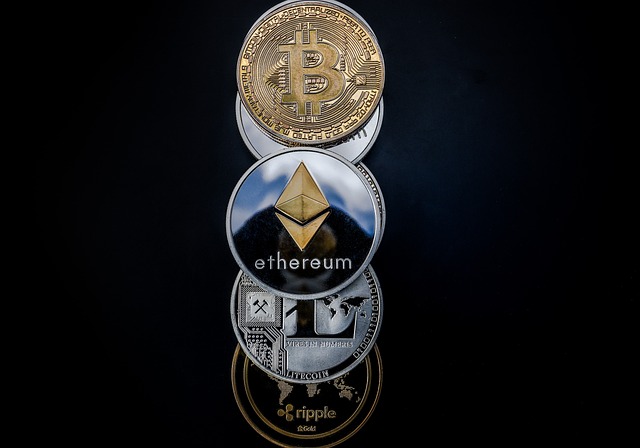Decentralized Finance System Explained: From Concept to Reality
Decentralized Finance System Explained: From Concept to Reality

What is Decentralized Finance?
Decentralized Finance (DeFi) refers to a financial system that operates without the need for intermediaries such as banks or financial institutions. In this system, financial transactions are executed directly between individuals using smart contracts on blockchain platforms. Essentially, DeFi aims to democratize finance, providing access to financial services to anyone with an internet connection, regardless of their geographical location or socioeconomic status.
The core principle behind DeFi is the elimination of centralized authorities and the reliance on code and mathematics instead. By leveraging blockchain technology, DeFi protocols enable users to borrow, lend, trade, and invest their assets in a decentralized manner. The transparency and immutability of blockchain transactions ensure that the entire ecosystem operates in a trustless and secure manner. As a result, users can interact with DeFi protocols confidently, knowing that their funds are not controlled by any single entity and that the rules of the system are not subject to manipulation or tampering.
Why is Decentralized Finance important?
Decentralized Finance (DeFi) has emerged as a crucial alternative to traditional financial systems, offering a range of benefits that make it an essential development in the world of finance. One of the primary reasons why DeFi is important is its ability to promote financial inclusion. Traditional financial systems often exclude individuals who lack formal identification or do not meet certain requirements. However, with DeFi, anyone with an internet connection can access financial services, irrespective of their location or background. This inclusivity opens up opportunities for millions of unbanked individuals to participate in the financial ecosystem and enjoy the advantages that come with it.
Additionally, DeFi offers increased transparency and security compared to traditional finance. By utilizing blockchain technology, all transactions carried out within the DeFi ecosystem are recorded on a public ledger, ensuring transparency and eliminating the need for intermediaries. This technology also enhances security, as the decentralized nature of blockchain makes it resistant to hacking and fraud. Moreover, smart contracts, which are an integral part of DeFi applications, automate processes and eliminate the potential for human error, further ensuring the integrity of transactions. These characteristics not only provide a more secure environment but also build trust and confidence among users, which is crucial for the sustainable growth of the financial sector.
Key features of Decentralized Finance
Decentralized Finance, or DeFi for short, has gained significant attention in recent years due to its unique characteristics that set it apart from traditional finance systems. One of the key features of DeFi is its permissionless nature. Unlike the traditional finance setup, where individuals need to go through intermediaries like banks or financial institutions, DeFi allows anyone with an internet connection to access financial services and products.
Another important feature of DeFi is its transparency. Blockchain technology, which underlies the DeFi ecosystem, ensures that all transactions and activities are recorded on a public ledger. This transparency not only provides security and immutability but also allows for increased trust between parties involved in the decentralized finance network.

In conclusion…
The role of blockchain technology in Decentralized Finance
The role of blockchain technology in Decentralized Finance cannot be overstated. Blockchain serves as the underlying technology that enables the efficient and secure transfer of value without the need for intermediaries. It acts as a decentralized ledger, where all transactions and financial activities are recorded in a transparent and immutable manner. This ensures trust and removes the reliance on a central authority.
Blockchain technology also brings about increased security and privacy in the realm of Decentralized Finance. By adopting cryptographic techniques and decentralized consensus mechanisms, blockchain ensures that transactions are authenticated and verified by the network participants. This eliminates the risk of tampering or fraud, providing users with a higher level of confidence in the system. Additionally, blockchain allows for pseudonymous transactions, protecting the identities of users while still maintaining transactional traceability. With its transparency, security, and privacy features, blockchain technology plays a vital role in the growth and success of Decentralized Finance.
How does Decentralized Finance work?
Decentralized Finance (DeFi) operates on a system of smart contracts that run on blockchain technology. These smart contracts are automated and self-executing, eliminating the need for intermediaries like banks or third-party financial institutions. Instead, DeFi relies on decentralized platforms or protocols that allow users to interact directly with each other and conduct various financial activities.
One of the key components of DeFi is the use of decentralized applications (DApps). These DApps are built on top of blockchain networks and enable users to engage in activities such as lending, borrowing, trading, or investing without the need for a centralized authority. By leveraging blockchain technology, DeFi aims to provide financial services that are open, transparent, and accessible to anyone with an internet connection.
In DeFi, users typically lock their assets (such as cryptocurrencies) into smart contracts, which then handle the execution of financial transactions or agreements. These smart contracts automatically enforce the terms and conditions specified within them, providing a trustless and secure environment for participants. Additionally, DeFi often incorporates concepts like governance tokens or decentralized exchanges, allowing users to have a say in the decision-making process and enabling the seamless exchange of tokens. Overall, the underlying principle of DeFi is to create a financial ecosystem that is community-driven, efficient, and independent from traditional financial systems.
Advantages of Decentralized Finance over traditional finance systems
Decentralized Finance (DeFi) offers several advantages over traditional finance systems. One key advantage is that DeFi eliminates the need for intermediaries such as banks or financial institutions. In traditional finance, these intermediaries often act as gatekeepers, controlling access to financial services and charging fees for their services. With DeFi, anyone with an internet connection can participate in financial transactions and access a wide range of financial services without relying on a centralized authority. This not only democratizes the financial system but also reduces costs for users.
Another advantage of DeFi is its transparency and immutability. In traditional finance, financial transactions are often opaque, making it challenging for individuals to verify the accuracy and integrity of the data. In contrast, DeFi transactions are recorded on a blockchain, a distributed ledger that is transparent and tamper-proof. This means that every transaction is visible to anyone on the network, ensuring accountability and preventing fraudulent activities. The transparency and immutability of DeFi make it a more secure and trustworthy alternative to traditional finance systems.
Challenges and limitations of Decentralized Finance
Decentralized Finance (DeFi) has gained significant popularity in recent years due to its promising potential to revolutionize the financial industry. However, like any emerging technology, it faces its fair share of challenges and limitations. One of the main hurdles is scalability. As DeFi applications operate on a blockchain, the speed and capacity of transactions are often limited by the underlying technology. This can lead to delays and high transaction fees during peak usage, hindering the seamless user experience that traditional financial systems offer.
Another prominent challenge is the issue of regulatory compliance. While DeFi prides itself on being decentralized and autonomous, it raises concerns for regulators who aim to protect consumers and prevent illicit activities. The lack of centralized authority makes it difficult to enforce traditional regulatory measures, such as identity verification and anti-money laundering protocols. This regulatory uncertainty can impede the widespread adoption of DeFi and discourage financial institutions from fully embracing its potential. Despite these challenges, the DeFi community continues to actively work on finding creative solutions to overcome these limitations and pave the way for a decentralized financial future.
Real-world applications of Decentralized Finance
Decentralized Finance (DeFi) has gained significant momentum in recent years, proving to have real-world applications across various sectors. One of the prominent areas where DeFi is making a significant impact is in the field of lending. Traditional lending systems often involve intermediaries, such as banks, which can be slow and costly. However, with DeFi, individuals can lend and borrow funds directly from each other, thanks to smart contracts that are executed on blockchain platforms. This streamlined process not only eliminates the need for intermediaries but also reduces transaction costs and enhances efficiency.
Another practical application of DeFi is in decentralized exchanges (DEXs). DEXs allow users to trade cryptocurrencies directly with one another, without the need for central authorities or middlemen. This offers users greater autonomy and control over their assets, as transactions are executed through smart contracts. In addition to facilitating peer-to-peer trading, DEXs also enhance privacy and security, as they do not require users to provide personal information to participate in trades. As a result, decentralized exchanges have become popular alternatives to centralized exchanges, providing users with more transparent and secure trading experiences.
The real-world applications of DeFi extend beyond lending and decentralized exchanges, illustrating its vast potential to transform traditional financial systems. From automated savings and investment platforms to insurance and even identity verification, DeFi is opening up new opportunities for individuals to engage in financial activities without the need for intermediaries. As the technology continues to evolve and mature, we can expect to witness even more innovative and impactful applications of DeFi in the near future.
The future of Decentralized Finance
The future of Decentralized Finance holds immense potential for reshaping the financial landscape. As more people become aware of the benefits and opportunities offered by decentralized systems, we can expect a surge in innovation and adoption. One of the key aspects that will drive the future growth of Decentralized Finance is the advancement of blockchain technology. With ongoing developments and improvements in scalability, privacy, and interoperability, blockchain will provide a solid foundation for the expansion of decentralized financial applications.
Moreover, the future of Decentralized Finance will likely witness increased collaboration between different projects and platforms. As the ecosystem matures, we can expect to see more partnerships and integrations that will enhance the functionality and accessibility of decentralized financial services. This will open up new avenues for individuals and businesses to participate in a more inclusive and globally connected financial system.

In conclusion, decentralized finance (DeFi) has emerged as a groundbreaking concept in the world of finance. It offers numerous advantages over traditional financial systems, such as increased accessibility, transparency, and security. The key features of DeFi, including smart contracts and open protocols, have the potential to revolutionize the way we interact with money and financial services.
Although DeFi is still in its early stages, it has already proven to be a disruptive force in the financial industry. The use of blockchain technology as the underlying infrastructure for DeFi applications has enabled the creation of decentralized platforms and protocols that are transparent, immutable, and trustless. As more people become aware of the benefits and opportunities presented by DeFi, we can anticipate its continued growth and evolution in the years to come.
• Decentralized finance (DeFi) offers increased accessibility, transparency, and security compared to traditional financial systems.
• Smart contracts and open protocols are key features of DeFi that have the potential to revolutionize the way we interact with money and financial services.
• DeFi has already proven to be a disruptive force in the financial industry.
• The use of blockchain technology as the underlying infrastructure for DeFi applications enables transparency, immutability, and trustlessness.
• As more people become aware of the benefits and opportunities presented by DeFi, its growth and evolution are expected to continue in the future.
What is Decentralized Finance?
Decentralized Finance, or DeFi, refers to a new type of financial system that operates on a decentralized network, usually powered by blockchain technology. It aims to provide open, accessible, and permissionless financial services to everyone.
Why is Decentralized Finance important?
Decentralized Finance is important because it eliminates the need for intermediaries and allows for greater financial inclusion. It also promotes transparency, reduces costs, and gives individuals more control over their assets and financial decisions.
What are the key features of Decentralized Finance?
Some key features of Decentralized Finance include decentralization, automation, transparency, interoperability, and open access. These features enable seamless and efficient financial transactions without relying on centralized authorities.
What role does blockchain technology play in Decentralized Finance?
Blockchain technology is the underlying technology that powers Decentralized Finance. It ensures the security, immutability, and transparency of transactions, allowing for trustless and efficient financial operations.
How does Decentralized Finance work?
Decentralized Finance works by utilizing smart contracts on a blockchain network. These smart contracts automate the execution of financial agreements and remove the need for intermediaries. Users can interact with DeFi applications directly, without relying on banks or other financial institutions.
What advantages does Decentralized Finance have over traditional finance systems?
Decentralized Finance offers several advantages over traditional finance systems, such as lower costs, faster transactions, enhanced privacy, greater accessibility, and reduced dependence on intermediaries. It also enables global financial inclusion and empowers individuals to have full control over their assets.
What are the challenges and limitations of Decentralized Finance?
Some challenges and limitations of Decentralized Finance include scalability issues, regulatory uncertainties, potential security vulnerabilities, and the volatility of cryptocurrencies. Additionally, the user experience of DeFi applications can sometimes be complex or unfamiliar to newcomers.
Can you provide some real-world applications of Decentralized Finance?
Sure! Some real-world applications of Decentralized Finance include decentralized lending platforms, decentralized exchanges, stablecoins, decentralized insurance, and crowdfunding platforms. These applications offer alternative financial solutions that are accessible to anyone with an internet connection.
What does the future hold for Decentralized Finance?
The future of Decentralized Finance is promising. As the technology matures and more people become aware of its benefits, we can expect to see increased adoption and innovation in the DeFi space.

In conclusion, why should we pay attention to Decentralized Finance?
Decentralized Finance has the potential to democratize finance, empower individuals, and reshape the way we interact with money. By embracing Decentralized Finance, we can unlock new opportunities, improve financial inclusivity, and build a more equitable and efficient financial system for the future.
Todays Featured Product:
Buy, exchange and grow your crypto securely with a Ledger hardware wallet, combined with the Ledger Live app. It’s never been easier to keep your crypto safe and accessible. Buy direct from Ledger.com and get todays Special Offers Here.




